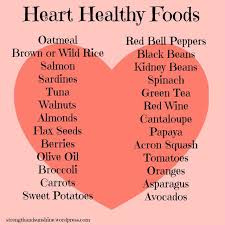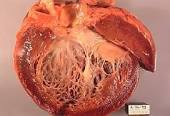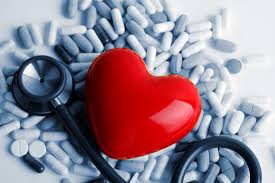
Diagnosed with Cancer? Your two greatest challenges are understanding cancer and understanding possible side effects from chemo and radiation. Knowledge is Power!
Learn about conventional, complementary, and integrative therapies.
Dealing with treatment side effects? Learn about evidence-based therapies to alleviate your symptoms.
Click the orange button to the right to learn more.
- You are here:
- Home »
- Blog »
- non-conventional therapies »
- Chemotherapy-induced Hypertension-
Chemotherapy-induced Hypertension-

Though I’ve written previously about chemotherapy-induced hypertension previously, that blog posts talked as much about cardiotoxicity and cardiomyopathy as they did about the increase in blood pressure caused by chemotherapy.
I will focus directly on CIH in this post and potential evidence-bases, non-conventional therapies. Further, I should clarify that my negative experiences with conventional medicine, oncology in particular, made me want to identify evidence-based non-conventional therapies such as curcumin, green tea, cocoa, exercise and nutrition in general.
Chemotherapy-induced hypertension is a common side effect among cancer patients. As I mentioned above, chemotherapy-induced cardiomyopathy led to Afib, hypertension, as well as many other long-term and late stage side effects.
Cardiac events associated with chemotherapy may consist of mild blood pressure changes, thrombosis, Electrocardiographic (ECG) changes, arrhythmias, myocarditis, pericarditis, myocardial infarction, cardiomyopathy, cardiac failure (left ventricular failure), and congestive heart failure (CHF).
Healthy resting blood pressure was defined as a reading-
- below 130/85 mm Hg,
- pre-hypertension as 130–139/85–89 mm Hg, and
- hypertension as 140/90 mm Hg or higher.
As is the case most every time I go to my doctor, for any reason, my blood pressure is checked. In December of 2010, when I first went to a cardiologist to diagnose my atrial fibrillation, I first learned that my combination of heart related chemotherapy-induced side effects included hypertension.
The nutrition, supplementation and lifestyle outlined below successfully manages my chronic Afib, cardiomyopathy and hypertension. I measure in the neighborhood of 110/70 once I began evidence-based but non-toxic heart healthy therapies.
Are you a cancer survivor? How is your heart health? Atrial fibrillation? Hypertension? Scroll down the page, post a question or comment and I will reply to you ASAP.
Good luck,
David Emerson
- Cancer Survivor
- Cancer Coach
- Director Galen Foundation
Recommended Reading:
- Cardiac Rehabilitation-Curcumin, Cardiovascular Disease, Heart Failure
- Can Statins Increase Cancer Risk and Over-Treatment?
- Heart Failure, Cardiac Function, Serum Vitamin D
Prevalence of primary and secondary hypertension among hospitalized patients with cancer in the United States
“Background- Hypertension is the most common comorbidity in patients with cancer…
Diet reverses diabetes and lowers blood pressure
“New research has shown that if you lose substantial weight and maintain that to manage your type 2 diabetes, you can also effectively control your high blood pressure.
Many in the study cut down or even stopped their anti-hypertensive medication.
A weight management programme, developed by researchers at the Universities of Glasgow and Newcastle for the Diabetes UK-funded DIabetes REmission Clinical Trial (DIRECT), has proved effective at lowering blood pressure and reducing the need for anti-hypertensive medications, as well as bringing remission of type 2 diabetes…
Results in lowering blood pressure
For those not previously treated for high blood pressure, blood pressures fell sharply from week one. For those who had stopped their blood pressure tablets, blood pressure still fell, although more slowly. Just over a quarter (28%) needed to reintroduce a blood pressure tablet during the formula diet period. However, researchers also found that the same proportion of participants (28%) were able to remain off their medications for at least two years…”
Isometric Exercise Optimal for Lowering Blood Pressure?
“Isometric exercise training emerged as the most effective mode to reduce blood pressure in a systematic review and meta-analysis of 270 randomized trials with close to 16,000 participants…
Previous research, based on older data that excluded high-intensity interval training (HIIT) and isometric exercise training (IET), led to aerobic exercise training (AET) being recommended for managing blood pressure, according to the authors…
Curcumin Exerts its Anti-hypertensive Effect by Down-regulating the AT1 Receptor in Vascular Smooth Muscle Cells
“These findings indicate that curcumin down-regulates AT1R expression in A10 cells by affecting SP1/AT1R DNA binding, thus reducing AT1R-mediated vasoconstriction and subsequently prevents the development of hypertension in an Ang II-induced hypertensive model…
Curcumin, which is the main active constituent of turmeric, exerts anti-oxidant, anti-bacterial, anti-fungal, anti-viral, anti-inflammatory, anti-proliferative, pro-apoptotic and anti-atherosclerotic effects…
Previous studies have demonstrated that curcumin possesses strong antioxidant and cardioprotective properties. Therefore, curcumin is considered to be a new therapeutic candidate for cardiovascular diseases, including idiopathic pulmonary arterial hypertension, glomerular hypertension and L-NAME-induced hypertension7,8,9,10,13
Our present study showed that curcumin lowers the blood pressure in Ang II-induced hypertensive C57Bl/6J mice, and this anti-hypertensive effect is partially attributed to the inhibition of AT1R expression in arteries…”
Effect of green tea supplementation on blood pressure
“Conclusion: Overall, green tea significantly reduced SBP and DBP over the duration of the short-term trials. Larger and longer-term trials are needed to further investigate the effects of green tea supplementation on BP control and clinical events.
Effect of cocoa on blood pressure
“Summary of main results-
Our updated meta‐analysis of 35 short‐term trials with 40 treatment comparisons involving 1804 mainly healthy individuals suggests flavanol‐rich cocoa products (mean 670 mg flavanols) to have a small but statistically significant effect in reducing blood pressure compared with control by 1.8 mmHg…”
The Role of Magnesium in Hypertension and Cardiovascular Disease
“Magnesium intake of 500 mg/d to 1000 mg/d may reduce blood pressure (BP) as much as 5.6/2.8 mm Hg. However, clinical studies have a wide range of BP reduction, with some showing no change in BP. The combination of increased intake of magnesium and potassium coupled with reduced sodium intake is more effective in reducing BP than single mineral intake and is often as effective as one antihypertensive drug in treating hypertension…
Preliminary evidence suggests that insulin sensitivity, hyperglycemia, diabetes mellitus, left ventricular hypertrophy, and dyslipidemia may be improved with increased magnesium intake…”



